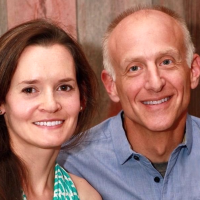We’re Lori and Jeff, married, licensed psychotherapists specializing in couple-to-couple relationship counseling and coaching at Aspen Relationship Institute. We’ve journeyed through the joys and challenges of marriage to create a connection that is powerful, tender, raw, and intimate.
She Said, He Said is a dual-perspective relationship advice column. This week we’re looking at how we sometimes lose our sense of independence when we get deeper into a relationship.
Dear Jeff and Lori
I love my girlfriend and thought I might want to marry her. We’ve been together for 2 years, and she moved in 6 months ago. I feel like we’re always together. I used to love spending time with her, but lately I’ve been getting annoyed that’s she’s always around. We have a small apartment, so it’s hard to have time alone. I love her, but am starting to wonder if I need to be with someone who’s more independent.
Signed, Wanting Space
Dear Wanting Space,
Lori & Jeff: Don’t change the locks just yet. We need to back up for a moment. During the honeymoon phase of a relationship, humans become enthralled in the process of joining. We are, in fact, wired to bond. Brain chemistry and ego pair together to throw a euphoric celebration every time the object of our desire so much as glances our way. But this honeymoon is not a one-way trip, and eventually, we all have to come back to earth.
While you were on your blissful bonding journey, two processes were likely happening under the radar, contributing to your discontent today. First, that innate desire to connect often drives partners to begin to meld more and more of their lives together. Your independent relationship with friends, hobbies, interests, even music and food are influenced. Meanwhile, your partner is also experiencing a shedding of her outer layers of individuality. Second, the level of impact your relationship has on your brain chemistry and ego begins to wane. There’s just not the same level of exhilaration as there was in the beginning. This mix often results in couples transitioning from honeymoon into rut.
Lori: If this shift sounds familiar, be assured it’s normal and natural to feel the desire for more space. The solution however likely lies in you as much as your partner. For a relationship to remain rewarding, both partners need to be connected to the people, interests and activities that breathe new life into their worlds. A relationship is not a source of vitality, but the expression of combining both partners’ vibrancy. It can take some time for individuals to create balance between the life you co-created and your individual identities. Simply starting a conversation with her can be a powerful catalyst. Explore what has changed about each of you since the day you met. What are the facets of each of you that are important to bring back into your individual lives?
Jeff: Please know that even though we, as men, are expected to be less emotional and not as impacted by love, we are just as susceptible to being caught up in the brain chemical rewards of spending time with our significant others—especially at the beginning of new relationships. Perhaps the new habits and patterns that have been formed are not true to either of you (she might not be happy with the arrangement either) and taking a step back to observe the newer behaviors might give you both some new perspective.
I am also curious about your history with emotional intimacy. Could this be a reaction to her getting too close? The decision to live together is a big step toward sharing your life with another person and can often result in fear and discomfort. You may to want to push her away and question the fundamentals of your relationship, thinking you might be better off with someone more independent. I wonder if “more independent” means less emotionally bonded.
Lori & Jeff: One action step that has been helpful for similar couples is to schedule time weekly or every other week to be apart. Meet up with friends, watch a movie, go for a hike—do whatever feeds your soul. Then reconnect with your partner in the evening for a date. Talk about your experiences, what you saw, felt or learned, and if appropriate, how you might try something similar together in the future.
If you attempt to create more balance, and are met with resistance from your partner, or if she is unwilling to be apart from you for even short periods of time, we encourage you seek the help of a relationship coach or counselor. These patterns may indicate deeper challenges related to trust or insecurity that are best explored with both partners’ participation.







Read 0 comments and reply